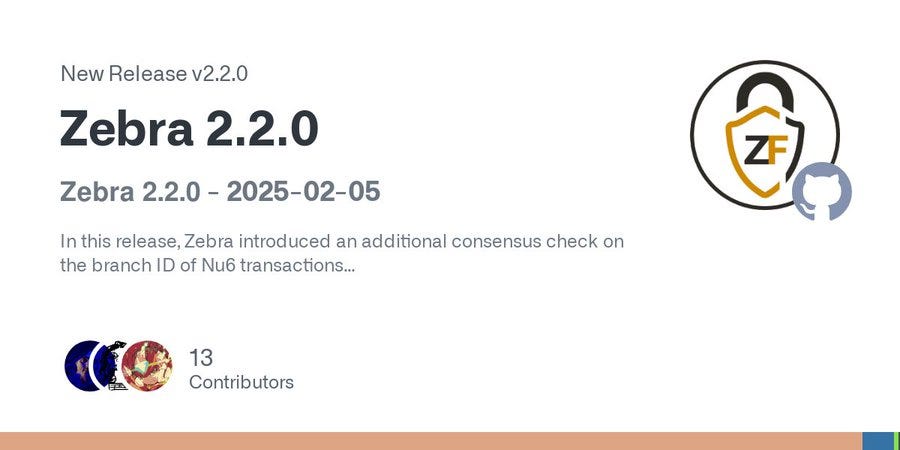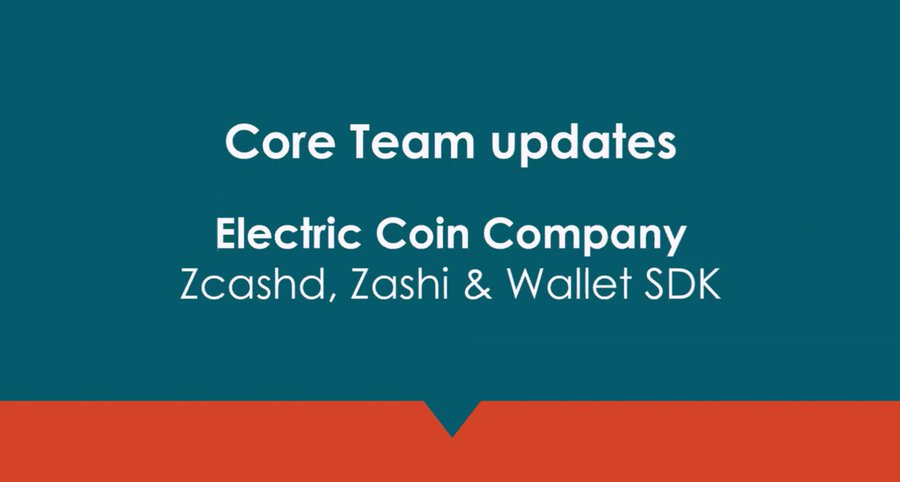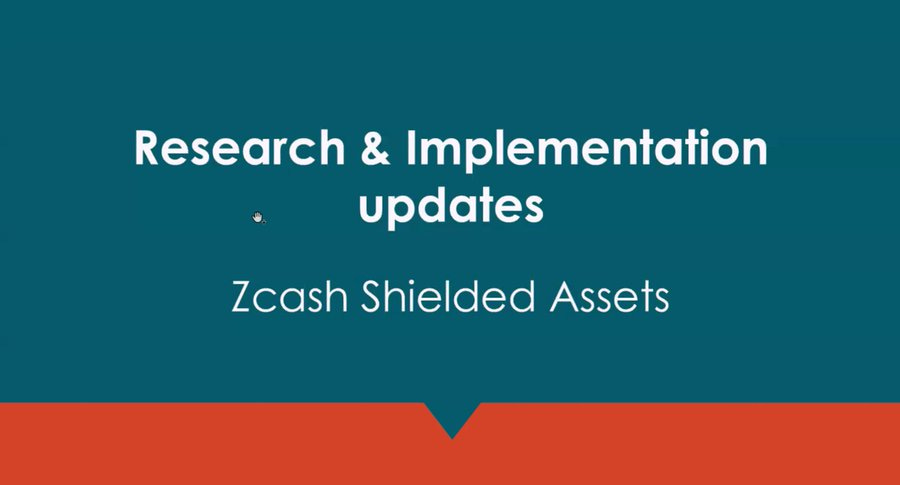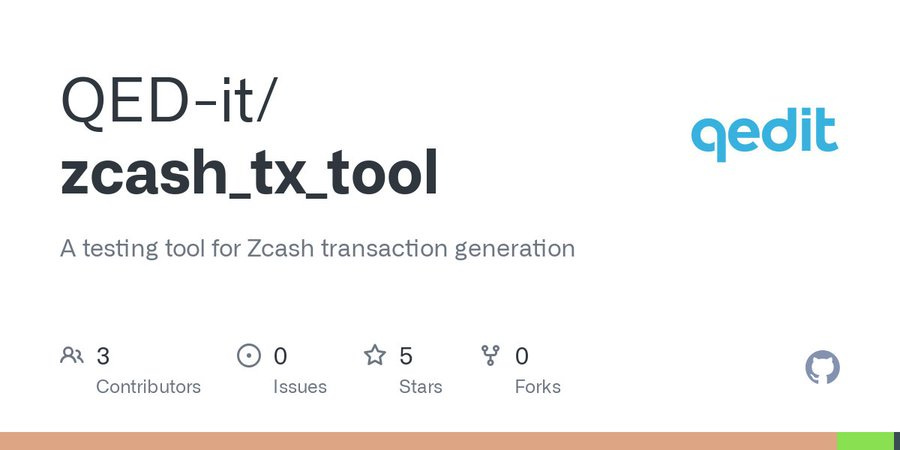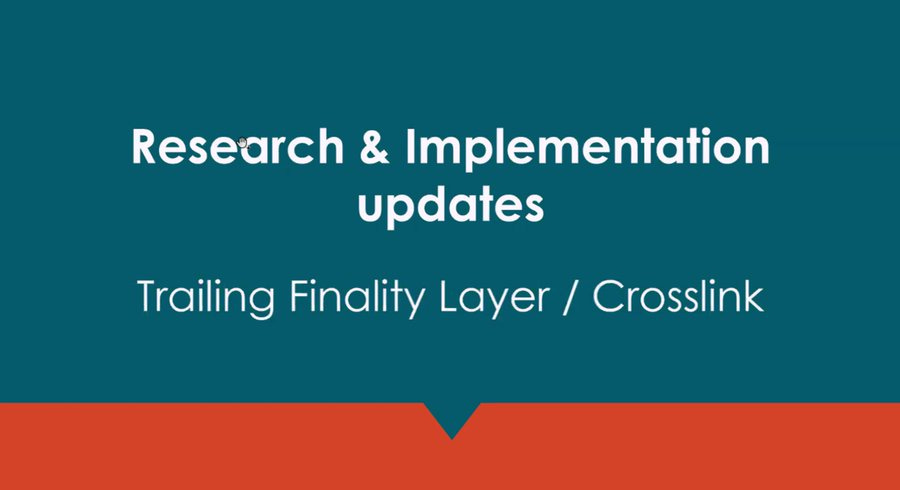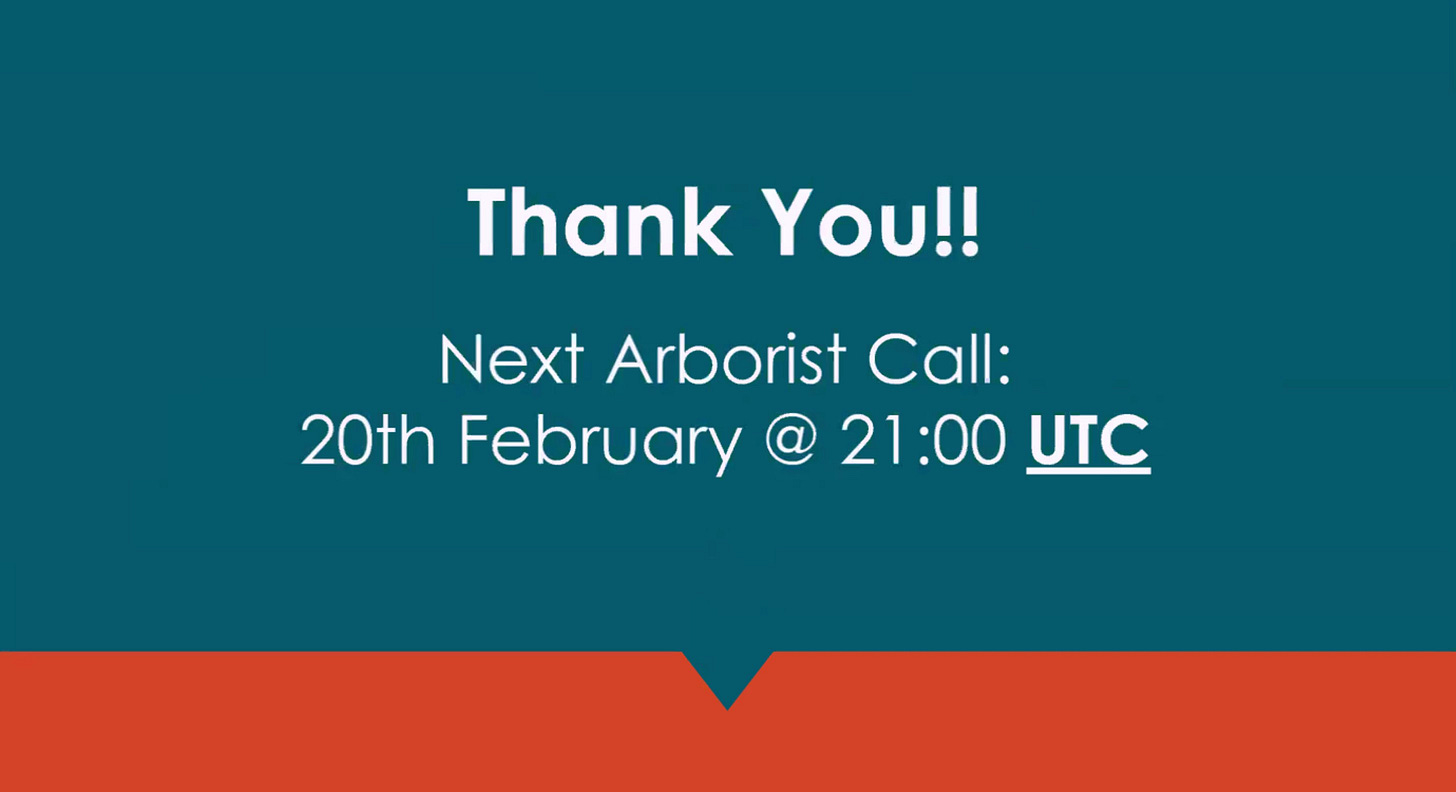Arborist Call #95 | Zcash R&D Updates
The Zcash Arborist Calls are bi-weekly protocol development meetings focused on tracking upcoming protocol deployment logistics, consensus node implementation issues, and protocol research.
This summary focuses on the last call that took place on 02/11/2025
This week Zebra v2.2.0 was released. It adds a new index to track spending transaction IDs, which is needed for the zcashd wallet replacement. It also migrates from the deprecated JSON RPC crate to JSON rpsee.
Most important in the release are the additional consensus rule checks for the branch ID - increasing security.
An external contributor fixed an issue where the blockchain info didn't handle an empty state properly, now replaced that with the Genesis block.
RPC compatibility is improved - making the error message of the getblock construction more closely matched to zcashd.
@upbqdn is working on refactoring the Docker file and entry point of zebra and Arya is working on a method to ban misbehaving peers using a score-based system.
Both working on getblockchaininfo returning more data. Alfredo is adding inbound connections to a getpeers RPC method.
ECC team has been focused on transparent wallet support.
@sellout completed Transparent script support, now merged to Zcash script. A follow-up PR currently under review. Transparent gap limit handling means
@zashi_app will import seed phrases from transparent-only wallets.
The team as also been reviewing ZIPs for ZSA and gave feedback to @qeditzkp. v6 transaction format specification is now the focus Zallet, the zcashd replacement wallet is now serving a few zcashd RPC APIs however still connecting to a lightwallet server for its data source.
The generalization of the Zcash Note Encryption Crate, which adds support for ZSA was merged upstream! It marks the first ZSA implementation piece added. The v6 transaction format changes are still under discussion.
https://t.co/4yrOWSj2el
On the Zebra side @qeditzkp team is working on the implementation of consensus rules and transaction structure as well as state management and asset supply management.
An ECS instance of their Zebra node is a first step to ZSA testnet.
The @LeastAuthority audit of the protocol provided suggestions, now all resolved. An updated audit report was provided confirming everything was addressed. A draft ZIP for ZSA transaction acceptance features has been created. It will be discussed with the Zip editors to finalize
With NU7 approaching question was raised as to what wallet vendors can do to prepare multi asset support with vivek recommending checking out the zcashtxtool and ZSA demo.
@aquietinvestor notes @shieldedlabs is currently focused on the integration work for the 3 NSM ZIPs.
Mariusz from @eiger_co is rebasing the PR covering the Zip 243 implementation.
Its mostly complete - next step to introduce the Tx v6 and remove the feature flag that was set.
@ShieldedLabs is booting up new employees, Sam and Mark. They are working on a CI for Zebra.
The upstream CI does integration test on mainnet as crosslink is a backwards compatible change. The 1st milestone will be a prototype that pretends to run the BFT half and always fails.
@zooko has also been reviewing comments from @AArnott and Arya on the crosslink deployment GitHub.
The FROST team has completed work on the server and FROST Client! Its audit began last week.
The FROST Client is a command line tool that allows you to generate keys and sign with FROST using its server.
@ZcashFoundation plans to hold a community call to demo the FROST server & client signing Zcash transactions on 19th February
Feedback very welcome!
Into Open Announcements a reminder to register for ZconVI !
Also a last call for anyone who wants to participate in the Zcash Dev Summit for @RealWorldCrypto
@emers0nian noted Zebra 2.2.0 is running globally. His Zcash Workshop has over 40 participants actively setting up new servers
Their new tool called Hosh displays the uptime of lightwallet nodes across the ecosystem.
https://t.co/1Cia9faDnu
Final addition made during the meeting was
@feministPLT finding ML-KEM, a postquantum encryption algorithm standardized by @NIST, is key private. This means future Zcash upgrade may use it for note encryption







